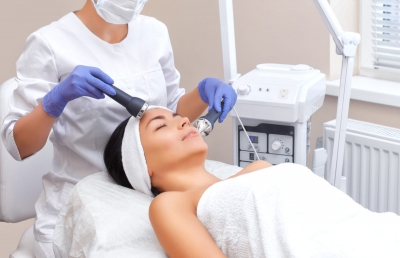What is a career in dermatology?

The skin is the largest and most important sensory organ of our body. We need to take utmost care of it. But there are times, when due to various reasons, our care is not enough and we need to go to a specialist to ensure it heals and comes back to its natural self.
What's this career about?
Dermatology is a branch of medicine dealing with skin, hair and nail diseases. It covers both medical and surgical aspects. It can be sub divided into Core Dermatology (deals with skin diseases), Cosmetology (treatment of skin appearance), Trichology (study of hair disorders) and Dermato-surgery (practice of skin surgeries).
As "skin doctors", dermatologists are physicians who diagnose and treat diseases of the skin. Their job responsibility includes examining the patients, carrying out grafts, smears of the affected skin and perform laser treatments on the affected areas. Some of the more common skin diseases include: skin cancer, warts, fungal infections, psoriasis, hair loss or excessive hair growth. Apart from the skin, a dermatologist is also concerned with treating hair, scalp and nail diseases.
The practice of dermatology requires a great depth of clinical knowledge. Skin diseases are difficult to treat as they can arise due to multiple factors operating inside or outside the human body. Dermatologists need to know the numerous internal conditions that can cause skin symptoms. So a doctor needs to stay updated. One of the most amazing facts about dermatologists is that they can treat over 3,000 skin diseases.
Dermatology patients can be of any age, from babies to people who are more than 100 years old. The field gives flexibility of either practising clinical or cosmetic or both. But this is one of very few medical fields, where you can stick to your working hours as no emergency cases come under this.
How do I get there?
To enter into this field, one should go for a five and half year MBBS degree followed by three years of MD Dermatology course. Aspiring candidates can get admission to the MBBS course through National Eligibility Cum Entrance Test (NEET 2021) or All India Institute of Medical Sciences (AIIMS), (AIIMS 2021. Other Universities/institutions may also conduct their own entrance examinations for providing admission. Basic eligibility is 10+2 with Physics, Chemistry and Biology.
After completion of the MBBS degree, the candidate has to appear in the Post Graduate Entrance examination. Selection in a branch depends on the rank. It provides training in cutaneous medicine and surgery. The emphasis is on topics, like clinical dermatology, modern therapeutics of the skin, including electro-surgical, surgical and cosmetic surgical techniques.
What key skills do I need?
Intelligent, hardworking and have patience to treat and study their patients.
Conscientiousness and strong communication skills
A high degree of motivation and self-discipline
Be able to deal with patients who may be upset, distressed or in pain
Strong desire to help the sick and the injured
Emotional stability and the capacity to make decisions in an emergency
Institutes
All India Institute of Medical Sciences (AIIMS), New Delhi
Jawaharlal Institute of Postgraduate Medical Education & Research (JIPMER), Puducherry
Maharashtra University of Health Sciences, Nashik
SRM Institute of Science and Technology (SRMIST), Kattankulathu
Maulana Azad Medical College, Delhi
Armed Force Medical College, Pune
Bharati Vidyapeeth's Medical College, Pune
Christian Medical College, Vellore
Jawaharlal Institute of Post Graduation Medical Education and Research, Pondicherry
Institute of medical science, Banaras Hindu University, Varanasi
Pay package
Dermatologists are one of the highest paid medical specialties. They may start in the range of Rs 10 15 lakhs per year. Experience matters a lot in this profession. Private clinical practice in dermatology is also quite rewarding as people are becoming more and more beauty as well as health conscious.
Employment profile
A dermatologist can seek employment in hospitals, dispensaries, nursing homes, research institutions, clinical laboratories run by central and state governments, defence services, charitable institutions, industrial concerns, etc. Medical colleges and training institutions also employ them as teachers and drug manufacturers. Medical services of the army, navy, air force under the Ministry of Defence also offer a good number of employment opportunities to doctors. They may also work in specialized skin care centres or open their own clinic.
Lucrative career opportunities for dermatologists are available. Since the skin is the largest organ of our bodies, at some point almost everyone has a skin problem whether it's an itchy rash or a deadly form of skin cancer. It is estimated, that about 20 per cent of all the patients seeking medical advice suffer from skin diseases. Also, skin diseases are on the rise, with excessive use of synthetic drugs and antibiotics, coupled with the emergence of degenerative auto immune diseases. With increasing skin problems worldwide, the demand for dermatologists who can work on various skin treatment techniques has increased.
Credit : Dr. Vibha Gupta (The Teenager Today)
Picture Credit : Google